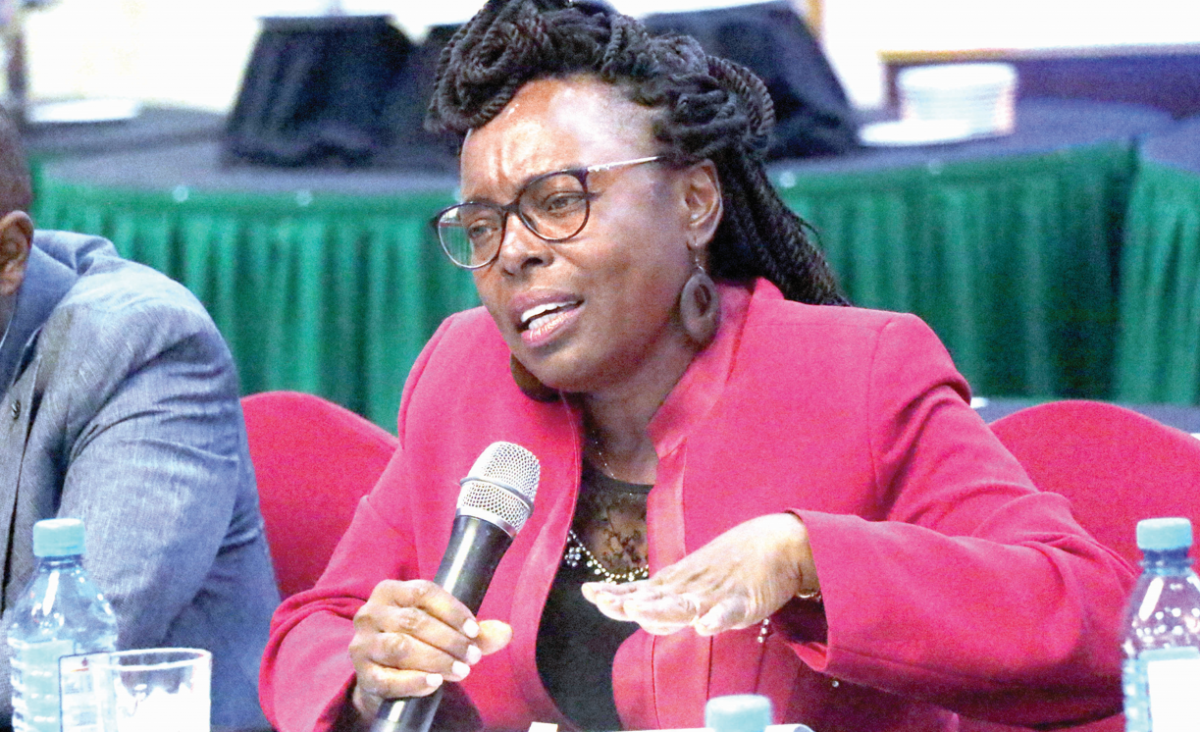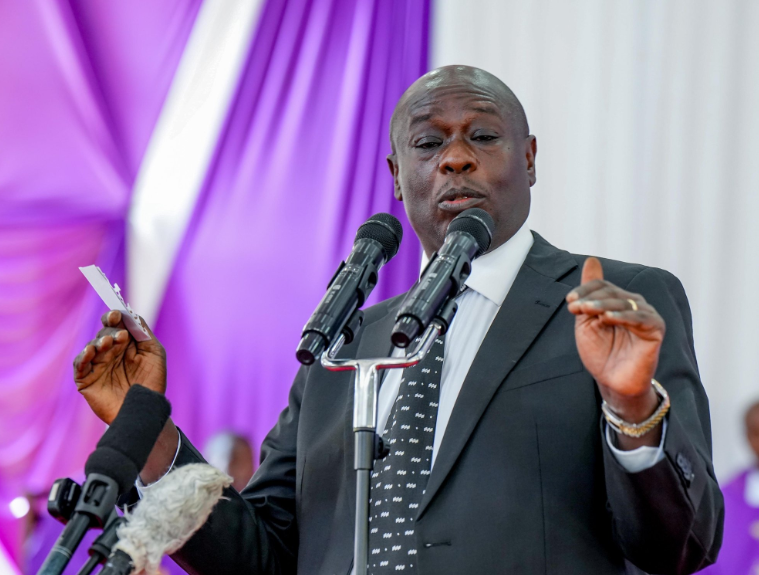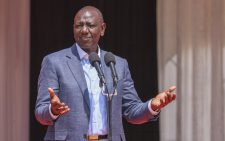Nyakango warns Kenyans to brace for tougher times

The Controller of Budget (CoB) Dr. Margaret Nyakang’o has warned that the government may soon be unable to render crucial services due to the weakening shilling against the dollar which has led to a sharp increase in public debt.
In her National Government Budget Implementation Review Report for 2022/23, Nyakang’o notes the country has a significant amount of public debt denominated in foreign currencies, which makes it vulnerable to currency fluctuations and exchange rate risks.
“The continuous depreciation of the Kenya shilling will necessitate an increase in the amount required for loan repayments. This will erode the government’s fiscal space and limit the implementation of other critical policies and programs, resulting in budget adjustments,” Nyakang’o said.
She added: “The National Treasury should also explore opportunities of accessing funding in multiple currencies to guard against intense pressure on the local currency.”
Last week, the Energy and Petroleum Regulatory Authority (EPRA) slapped Kenyans with a record high prices of fuel products where diesel went up by Sh21.32 while Kerosene increased by Sh33.13 to retail at Sh200.99 and Sh202.61 per litre in Nairobi.
The sharp increase in the prices was attributed partially to the weakening shilling against the dollar piling woes on Kenyans who are already battling high cost of basic commodities.
Dollar exchange rate
Noting that the exchange rate between the Kenya shilling and the US dollar was roughly Sh117.87 in July 2022, while in June 2023, it averaged Sh141.14, a difference of 23.27 shillings (approximately 18.9 per cent exchange rate depreciation) the CoB explained that the depreciation of the Kenyan shilling has caused an increase in the debt stock and debt repayments, both principal and interest in Kenya shilling terms.
The CoB wants a special audit of existing and committed loans to be conducted to link the loans with the projects funded through borrowed funds. She also recommended profitable Semi-Autonomous Government Agencies (SAGAs) to repay the loans they incur to relieve the National Treasury the debt burden.
“The office observed that the National Treasury has, over the years, acquired and absorbed loans on behalf of profitable Semi-Autonomous Government Agencies. These loans should be reviewed with the aim of transferring payment obligations to the Agencies,” she said.
SAGAs are government entities created to perform specific public functions and services in various sectors including health, education, research and infrastructure.
They comprise, among other institutions, the three-level six hospitals, Kenya Medical Research Institute (Kemri), Kenya Medical Supplies Authority (Kemsa), Kenya Medical Training College (KMTC), Kenya Revenue Authority (KRA) and Kenya Power and Lighting Company (Kenya Power).
Internal borrowing
According to Nyakang’o, the government did not raise the target loan from internal borrowing as many investors preferred Treasury Bills which have shorter maturity periods than Bonds to avoid the duration risk.
“The public debt payment is a first charge on the Consolidated Fund; and thus, inadequate collections from Treasury Bonds imply increased debt payments on Treasury Bill redemptions at the expense of the recurrent and development expenditures,” the Controller of Budget said.
To reduce overreliance on loans, the CoB advised the government to focus on growing revenue through tax collection as well as emphasizing the need for fiscal consolidation to enhance fiscal discipline in government.
“Further, revenue measures, such as enhanced efficiency in tax administration to eliminate tax evasion, improve tax compliance, widen the tax base and ensure government subsidies are aimed at supporting production for higher economic growth,” Nyakang’o said.
Public finance management
Additionally, Nyakang’o faulted President William Ruto for excluding critical institutions in public finance management such as the Controller of Budget, Office of the Auditor General and the National Treasury and County Treasuries in his Special Committee that was established by the Cabinet in June to verify pending bills.
“The Committee was tasked with auditing liabilities for the period between 2005 and 2022 and consists of members from the Attorney General’s Office, the State Department of Roads, the State Department of Public Works, the State Department of Housing and Urban Development and the Public Procurement Regulatory Authority,” she noted. “The Controller of Budget recommends consideration for the inclusion of crucial institutions in public finance management in the pending bills verification committee to enhance its effectiveness.”
She revealed that as of June 30, the total pending bills of the National and County governments stood at Sh727.74 billion, consisting of Sh567.50 billion and Sh160.24 billion for National and County governments, respectively. After analysising various financial and non-financial reports for the financial year under review, the Controller of Budget criticized some government agencies for exceeding the budget allocated to them, reflecting negative balances and over-absorption of funds which is against the Public Finance Management Act that specifies clear guidelines on budget reallocation.












